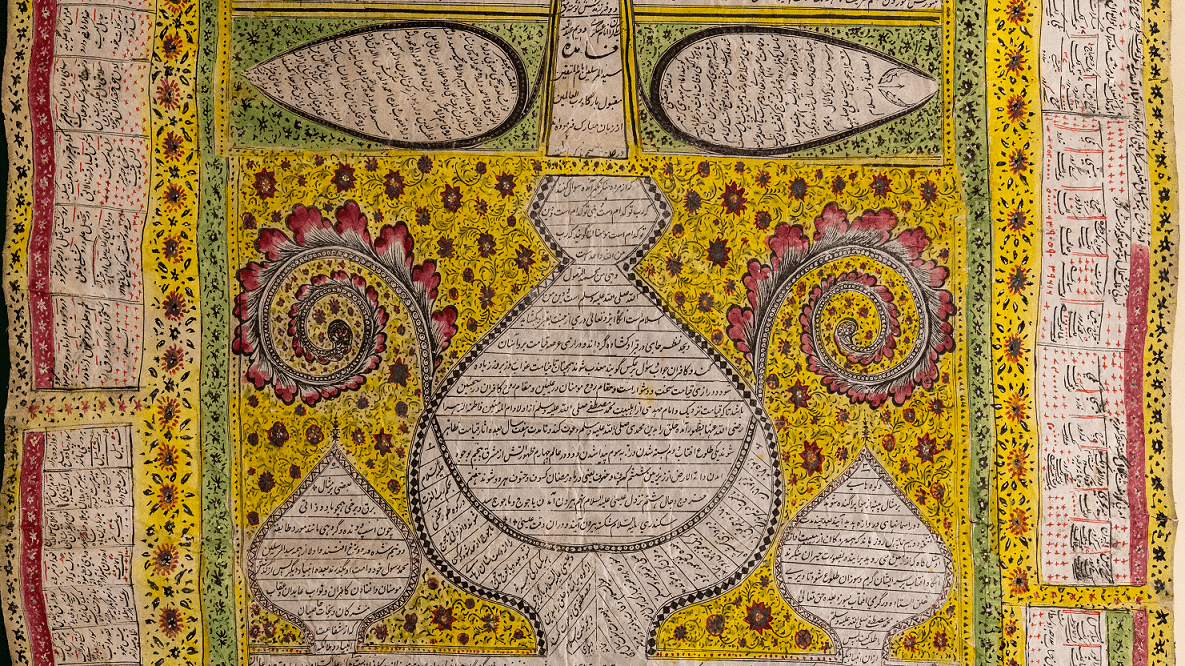
The World on a Lithograph Scroll from Meerut, 1849
Brown University Shahzad Bashir
November 3, 2022 · 12:00 pm—1:20 pm · 399 Julis Romo Rabinowitz Building
The Interdisciplinary Doctoral Program in the Humanities at Princeton (IHUM)

Modern consciousness in India and other places colonized by Europeans is often seen as a passage from particularity to universality. In this view, European epistemologies are self-evidently global while knowledge systems of the colonized are parochial, irrespective of their complexity. Our acceptance of this understanding means taking European claims on face value. In elaborate narratives produced in India circa 1750-1850, European knowledge is seen as particular and limited, for which place is made within the universe as already known on the basis of longstanding paradigms. Examining this flipping with respect to notions of time and space urges resisting dichotomous reification. Entering into Indian worlds via material artifacts produced in the relevant period forces us to dwell in intellectual and sociocultural flux. Doing so must compel us to imagine and narrate worlds as amalgamated, and in perpetual motion, rather than stably hierarchical.
Co-Sponsored by the Department of Near Eastern Studies, Department of Religion, and the Program in South Asian Studies.















